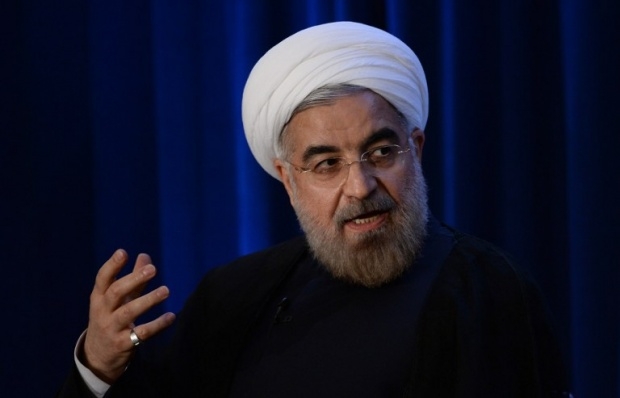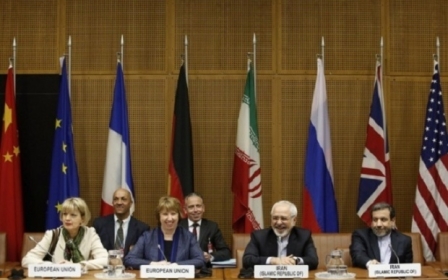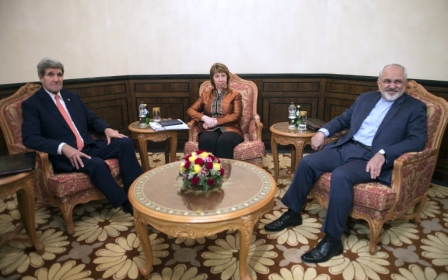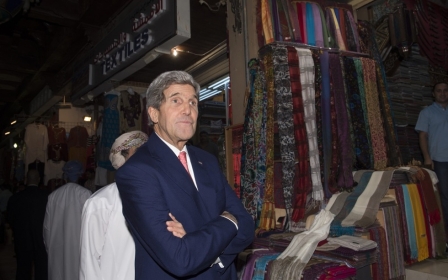Iran flexes diplomatic muscles ahead of nuclear deadline

With the deadline for reaching a deal on Iran’s nuclear programme only days away, most analysts appear to believe that the likelihood of reaching a comprehensive deal is low. This, in turn, has touched off a flurry of analysis and speculation as to what will ensue after the expiry of the 24 November deadline.
The most unlikely scenario is a complete collapse in the talks, not least because Iran and the so-called P5+1 are too invested in the process to allow it to fail prematurely. This is reinforced by broader diplomatic and geopolitical dynamics, namely the combustible situation at the heart of the Middle East, where both Iran and the United States are conducting parallel military campaigns against the threat posed by the Islamic State jihadist group.
Iran is likely looking well beyond the current deadline with a view to preparing a stronger negotiating hand for subsequent rounds of talks. Aside from raising the stakes for the West in the Iraqi and Syrian conflicts, the Islamic Republic will likely seek to bolster its global diplomatic stance, specifically by strengthening ties with Russia and China.
At this stage, the signs are that Iran is in no mood to make deep concessions to western powers, and likely sees enough breathing space to conduct attrition diplomacy with a view to ultimately preserving as much nuclear-related knowhow and capability as possible.
Diplomatic offensive
Iran is set on deepening ties with Russia and China over the next decade. This is a part of a broader foreign policy strategy and not just tied to the country’s efforts at breaking Western diplomatic encirclement centred on the nuclear issue.
The recent Russian declaration of the intention to build two more civilian nuclear reactors in Iran, and potentially six more after that, gives Iran an immediate diplomatic boost in Vienna and helps strengthen the Iranian position in subsequent rounds of talks.
In order to clinch a deal on the nuclear issue, Iran needs to convince domestic public opinion that hard-won nuclear-related achievements will not be sacrificed in exchange for sanctions relief. The veneer of nuclear capacity-building, achieved by the expansion of the country’s reactor base, will be helpful in that regard. This is despite the fact that the reactors are not linked to the contentious aspects of Iran’s nuclear programme, namely uranium enrichment and plutonium production.
The Russian announcement was quickly followed by a report on the semi-official Mehr News Agency on Chinese plans to double investment in Iranian infrastructure projects. According to the report, China is planning to increase its investment in water, electricity oil and gas projects to US 52 bn.
The Chinese plan is of critical importance to Iran, not just on the diplomatic front, but more importantly, to the country’s besieged sanctions-hit economy. Whilst even in the event of a comprehensive deal, the sanctions regime is likely to stay in place for years, the Iranian government can at least claim that the strategic sectors of the economy will not suffer as a result.
Nevertheless, the economic reality on the ground for ordinary Iranians is likely to be characterised by continuing volatility and inflation, albeit at a slower pace than in recent years.
Beyond strengthening political, economic and technical ties with global powers, the Iranian government has also embarked on a regional diplomatic offensive. This was underlined by Iranian president Hassan Rouhani’s trip to the Republic of Azerbaijan, which was widely viewed by experts and journalists in Tehran as a sign of thawing relations with a difficult neighbour.
According to the English-language Tehran Times, Iran and Azerbaijan signed five cooperation agreements on a broad range of issues spanning the economic, energy, industry, communications and transport sectors. Diffusing tensions with difficult neighbours is a key plank of the Rouhani government’s foreign policy. The Republic of Azerbaijan is especially important in this regard because of its close ties to the United States and Israel.
In recent years the Iranian government has consistently, albeit indirectly, accused the Azeris of aiding and abetting American and Israeli espionage and sabotage operations in Iran. Tensions peaked during the assassination of Iranian nuclear scientists which Tehran blamed on Israel. At the time Iranian security officials raised the possibility of the Israelis using Azerbaijan as a base of operations to plan and execute some of the assassinations.
By normalising ties with Azerbaijan, the Rouhani government will be hoping to remove a potential security and military threat from Iran’s borders. This will boost Iran’s negotiating position, particularly if talks drag on and break down, thus spurring the Americans and the Israelis to threaten Iran with military action.
No end in sight
Whilst it is tempting to speculate on an endgame, the reality is that Iran and the western powers are nowhere near clinching a comprehensive deal on the nuclear issue. The two sides’ bottom lines on the nuclear fuel cycle are too divergent to allow for an easy conclusion.
The West wants to cripple Iran’s enrichment capacity in order to foreclose the hypothetical ability to develop nuclear weapons. For its part, Iran, which has consistently maintained that its nuclear programme is exclusively civilian, is loath to relinquish any of the scientific and technical gains of the past two decades.
Hassan Rouhani’s centrist government wants to clinch a deal with the P5+1, but this aspiration is constrained by the need to accommodate widespread and profound domestic concerns. While there are hardliners who oppose any deal with the West, the consensus position in the Islamic Republic is the one espoused by the country’s leader, Ayatollah Seyed Ali Khamenei.
Notwithstanding the leadership’s support for the government in its negotiations with P5+1, Khamenei is less keen than Rouhani to make significant concessions. This explains the Iranian government’s preparation for an extended period of attrition diplomacy to persuade the West to agree to a deal on Iran’s terms.
- Mahan Abedin is an analyst of Iranian politics. He is the director of the research group Dysart Consulting.
The views expressed in this article belong to the author and do not necessarily reflect the editorial policy of Middle East Eye.
Photo: Iranian President Hassan Rouhani during United Nations General Assembly meeting in New York on 26 September (AFP)
New MEE newsletter: Jerusalem Dispatch
Sign up to get the latest insights and analysis on Israel-Palestine, alongside Turkey Unpacked and other MEE newsletters
Middle East Eye delivers independent and unrivalled coverage and analysis of the Middle East, North Africa and beyond. To learn more about republishing this content and the associated fees, please fill out this form. More about MEE can be found here.





